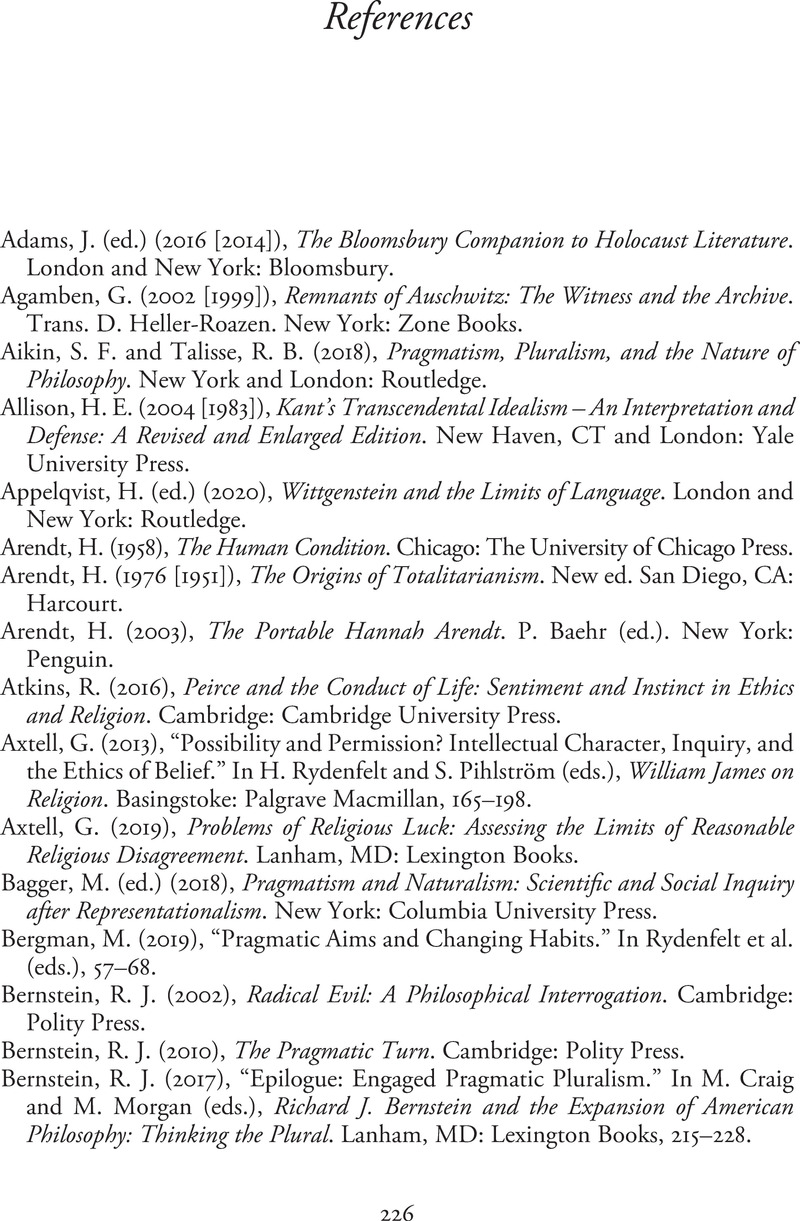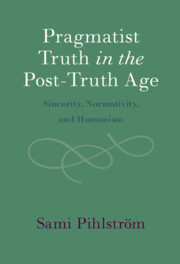Book contents
- Pragmatist Truth in the Post-Truth Age
- Pragmatist Truth in the Post-Truth Age
- Copyright page
- Epigraph
- Contents
- Acknowledgments
- Introduction
- Chapter 1 James’s Children?
- Chapter 2 Religious Truth and Pluralism from a Pragmatist Point of View
- Chapter 3 Around or through Kant?
- Chapter 4 The Will to Believe and Holistic Pragmatism
- Chapter 5 How Is Normativity Possible?
- Chapter 6 Pragmatic Agnosticism – Meaning, Truth, and Suffering
- Conclusion
- References
- Index
- References
References
Published online by Cambridge University Press: 14 September 2021
- Pragmatist Truth in the Post-Truth Age
- Pragmatist Truth in the Post-Truth Age
- Copyright page
- Epigraph
- Contents
- Acknowledgments
- Introduction
- Chapter 1 James’s Children?
- Chapter 2 Religious Truth and Pluralism from a Pragmatist Point of View
- Chapter 3 Around or through Kant?
- Chapter 4 The Will to Believe and Holistic Pragmatism
- Chapter 5 How Is Normativity Possible?
- Chapter 6 Pragmatic Agnosticism – Meaning, Truth, and Suffering
- Conclusion
- References
- Index
- References
Summary

- Type
- Chapter
- Information
- Pragmatist Truth in the Post-Truth AgeSincerity, Normativity, and Humanism, pp. 226 - 237Publisher: Cambridge University PressPrint publication year: 2021

